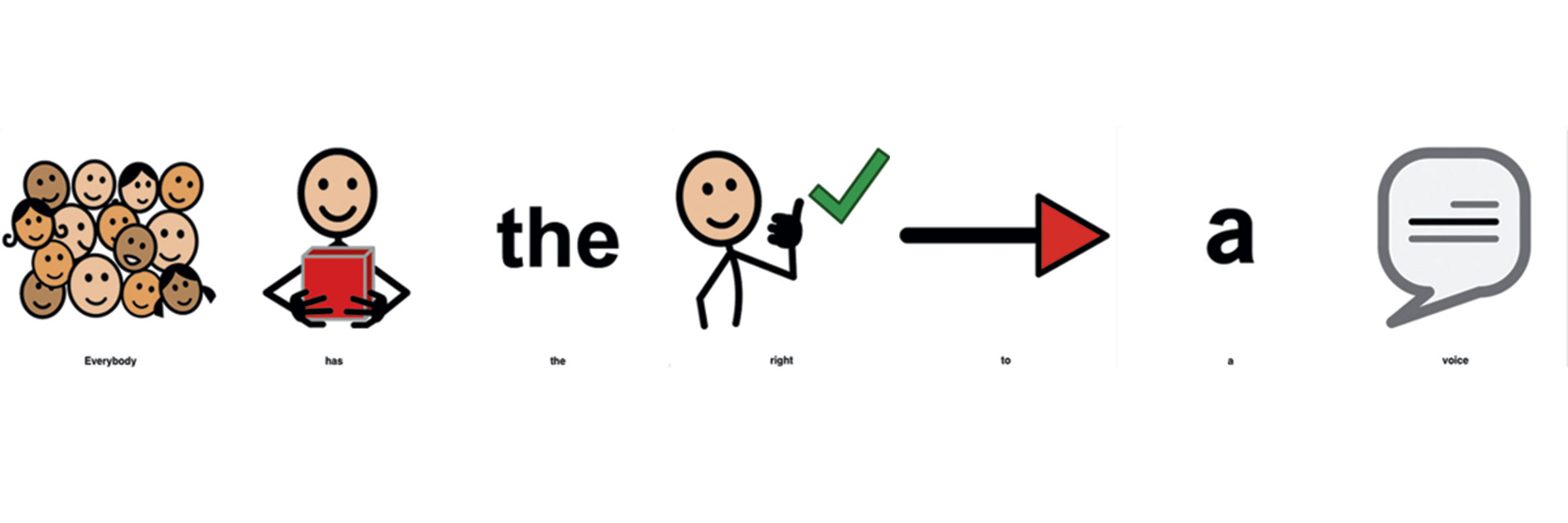For the first time since he was a toddler, Michael McKinney ’15 had to think about speech. Tasked with promoting an iPad app designed for nonverbal students, McKinney considered the physical process of forming words. He imagined the struggle of getting his ideas across without speaking. “Those who are speech impaired have the capacity to communicate,” said McKinney, a biology major from Grand Rapids, Mich., “but they can’t physically do it.”
The app McKinney was promoting, Speech Hero, started as a conversation over Christmas dinner a few years ago. McKinney’s cousin, Aynna, is a speech-language pathologist and a graduate student at the University of Tennessee. She chatted with family about the ways her clients benefited from using pictures to communicate, but was troubled by the fact that the current devices used to assist nonverbal people were incredibly expensive. The ones attached to wheelchairs, for example, cost as much as $10,000.
McKinney’s brother Andrew designs apps for a living and saw the potential to create something big. After two years of research and development, Speech Hero emerged, offering a voice for those who are unable to speak. With tiles of pictures and words, it bridges the gap between mental thoughts and expressed ideas.
After following Aynna’s work with students and medical clinics, along with his brother’s creation of the app, Michael gained the understanding necessary to create a detailed video tutorial.
An app with 10,000 preprogrammed tiles may seem intimidating, but the video guides the viewer through Speech Hero’s user-friendly functions. The video also demonstrates how users can customize specific tiles based on their needs. Similar to the way Google remembers searches, the app is quickly able to predict what users are going to say. Soon, a string of words and pictures can express anything from a simple suggestion to more complex thoughts. McKinney also left a few personal touches, such as pictures of himself and his friends in a folder to show teachers how they can organize their students.
McKinney expressed interested in creating more videos if his brother expands the app. He noted that while biology and videos don’t typically overlap, “I was able to apply nonconventional skills and creative thinking.”
“It’s nice to put all our talents together,” said Aynna.
The app, which is currently available on the iPad for $99, is targeted toward medical companies and doctors. After a few months on the market, it is already expanding to schools, parents, and speech pathology centers.
“We want these children to have the best ability to communicate,”said Aynna. “Everybody has the right to a voice.”

